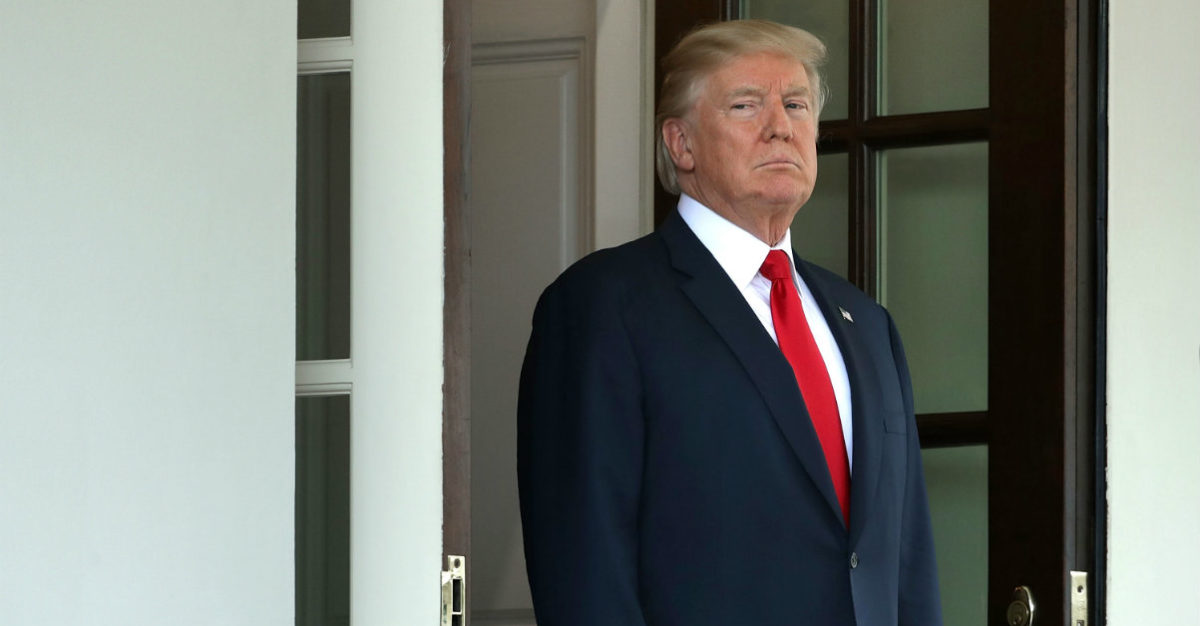
The Trump administration responded on Monday to a Freedom of Information Act (FOIA) lawsuit filed by the New York Times seeking electronic communications between two White House aides concerning the administration’s decision to withhold congressionally appropriated military aid to Ukraine.
The lawsuit, originally filed in Nov. 2019 in the U.S. District Court for the District of Columbia, sought emails between former Assistant to the President and Senior Advisor to the White House Chief of Staff Robert Blair and Office of Management and Budget’s Principal Associate Director of National Security Affairs Michael Duffey.
In its initial response, the administration said it found 20 emails that were relevant to the Times request, but claimed they were all reviewed and determined to be exempt from disclosure under the “presidential communications privilege” (Exemption 5).
The Times challenged that assessment earlier this month, arguing that the “presidential communications” exemption was both improperly applied to the communications at issue and inapplicable because it was being invoked to hide government misconduct.
In Monday’s 48-page filing, the Trump administration refuted the Times’ assessment.
“[T]he presidential communications privilege permits an agency to withhold responsive records in full without determining if the record contains reasonably segregable, releasable information,” the administration said. “Because each of the records contained presidential communications, OMB withheld the documents in their entirety under Exemption 5. Further, the Times’ attempts to vitiate the presidential communication and deliberative process privileges by invoking the government misconduct and waiver fail as a matter of fact and law.”
To buttress their contention that the documents were properly covered under Exemption 5, the administration highlighted the broad scope of the exemption as “essential to the provision of frank and candid advice to the President and his advisors,” noting that it assessed each email individually and did not apply “blanket privilege” to the emails.
The administration also claimed that the Times’s “government misconduct” argument was inapplicable to FOIA cases.
“The Times argues that government misconduct – in this case, its allegation that OMB allegedly misused its apportionment authority under the Impoundment Control Act – renders Exemption 5 inapplicable,” the motion stated. “This argument fails because: (1) the prevailing view is that the government misconduct exception does not apply in the FOIA context; (2) even if the government misconduct exception were applicable, OMB has demonstrated that the records do not reflect any misconduct; and (3) in any event, the records cannot constitute the type of ‘extreme’ misconduct contemplated by the government misconduct exception because OMB officials operated in the good faith belief that they were not violating the Impoundment Control Act or any other law.”
In a footnote, the Trump administration even mentioned the impeachment acquittal.

Essentially, the administration is arguing that even though the Government Accountability Office found the hold on Ukraine aid to be in violation of the Impoundment Control Act and thus illegal, the conduct still did not constitute the “extreme” wrongdoing necessary for the misconduct exemption to apply.
In fact, the administration argued that the Office of Budget and Management didn’t even agree with the GAO’s conclusion that any law was violated.
“Though the GAO report concluded that the impoundment of funds violated the Impoundment Control Act, OMB did not share that view of the law,” the administration argued. “Indeed, OMB responded to the GAO that its actions during the pause of military assistance to the Ukraine, prior to the funds expiring, was authorized by statutory language giving the Executive branch ‘broad discretion to determine how these particular funds should be spent.’”
Read the full motion below:
NYT-OMB-Ukraine-2020-02-10 by Law&Crime on Scribd
[image via Chip Somodevilla and Getty Images]
Have a tip we should know? [email protected]